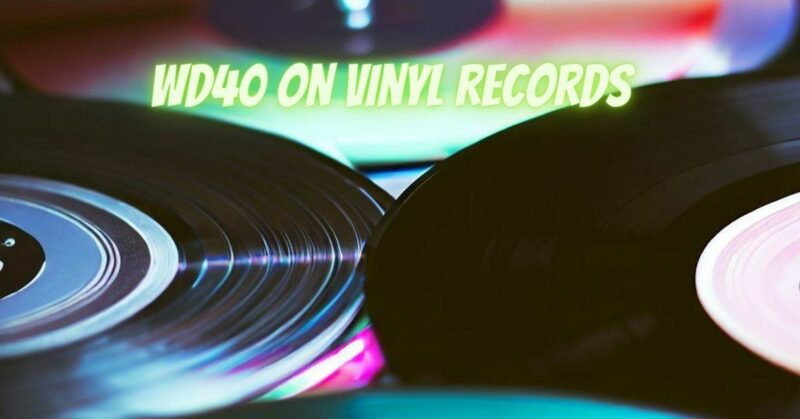Vinyl records are beloved for their warm analog sound, but they are also susceptible to various issues, including dust, dirt, and static. Some collectors have experimented with unconventional methods, such as using WD-40, to clean and maintain their records. In this article, we will explore the use of WD-40 on vinyl records, separating myths from realities and discussing the potential risks and benefits.
Understanding WD-40:
WD-40 is a popular multi-purpose lubricant and penetrating oil known for its ability to displace moisture and provide temporary rust protection. It is not designed for cleaning or maintaining vinyl records and should be used with caution.
Myths and Misconceptions:
There are several myths and misconceptions regarding the use of WD-40 on vinyl records:
- Myth: WD-40 Cleans Records: WD-40 is not a record cleaning solution. It may temporarily mask surface imperfections, but it does not effectively remove dirt, dust, or grime from the grooves.
- Myth: It Improves Sound Quality: Using WD-40 on records is not proven to enhance sound quality. In fact, it can introduce residue into the grooves, potentially causing playback issues and damaging your stylus.
Risks and Potential Damage:
Using WD-40 on vinyl records poses several risks and can potentially lead to damage:
- Residue Buildup: WD-40 can leave behind a residue on the record surface. Over time, this residue may attract more dust and dirt, worsening the problem.
- Stylus Damage: The residue left by WD-40 can accumulate on your stylus (needle) and affect its performance. A contaminated stylus can damage records and result in poor playback quality.
- Long-Term Effects: The long-term effects of WD-40 on vinyl records are not well-documented. However, the risks of introducing foreign substances into the grooves of your records should not be taken lightly.
Safe Alternatives for Vinyl Record Cleaning:
If you want to clean and maintain your vinyl records, there are safer and more effective alternatives:
- Anti-Static Brush: Use an anti-static brush to remove surface dust and static from your records before playback.
- Carbon Fiber Brush: A carbon fiber brush can safely clean the grooves of your records and remove loose particles.
- Record Cleaning Solution: Invest in a dedicated record cleaning solution and a microfiber cloth. These are designed to remove dirt and grime while leaving no residue.
- Record Cleaning Machines: Consider using a record cleaning machine if you have a substantial vinyl collection. These machines can deep-clean records and remove embedded debris.
While the use of WD-40 on vinyl records may be driven by curiosity or a desire for a quick fix, it is not a recommended or proven method for cleaning or maintaining your cherished vinyl collection. Instead, opt for dedicated record cleaning tools and solutions that are specifically designed to protect the integrity of your records and stylus while enhancing your listening experience. Remember that proper care and maintenance will help ensure the longevity and sound quality of your vinyl records.


